Alumni Spotlight: Garry Nokes (B.A. '91)

The Medieval Institute is pleased to present our Spring 2022 Alumni Spotlight. In this series we feature the career paths of Institute alumni. Look for a new installment each semester.
This academic year, as the Medieval Institute celebrates 75 years, we are highlighting alumni who can speak to its long and exceptional history. Garry Nokes graduated from Notre Dame in 1991 with a Bachelor's in History and Medieval Studies. After a terminal Master's at the University of Chicago, he worked as an editor and wrote books on local history before uniting his interests in education and history in his current job as a middle school social studies teacher in southern Indiana.
His experiences remind us of the value of a broad education and his timely advice will help any undergraduates in or considering Medieval Studies.
Thinking back to your time at Notre Dame, what drew you to the Medieval Studies program?
I had known since middle school that I loved history, mainly because of some great teachers and a lot of extracurricular non-fiction reading. My high school offered very few history courses, so I really looked forward to college coursework; I knew if I ended up at Notre Dame that I would probably take some courses through the renowned Medieval Institute that I had read about in the promotional literature. When I enrolled at Notre Dame in 1987 I initially thought I would major in history and then go on to law school, but a series of fortuitous experiences guided me into Medieval Studies.
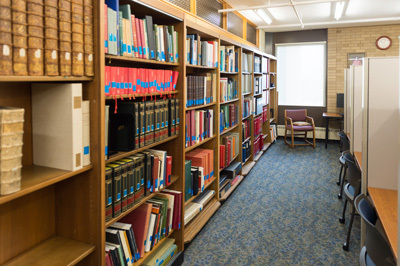
By the end of freshman year I had grown tired of my work-study job in the dining hall so I looked for a better opportunity for on-campus employment. The position of student assistant to the MI Librarian Marina Smyth appeared on a job board and I jumped at the opportunity to leave behind cleaning dishes at the slop sink. Marina interviewed me and then gave me the job. She made a wonderful boss because she did so much more than just assign me tasks—such as shelving books, making photocopies, and running errands—for a few dollars an hour. She took time every day to teach me the ways of academia, especially Medieval Studies, which I chose as a minor to go along with my history major during my sophomore year.
I spent my first semester as a junior in the London Programme. My experience in Britain accelerated my interest in the Middle Ages, especially during a course focused on the Norman Conquest of England taught by Dr. John Gillingham, a professor from the London School of Economics teaching in the Notre Dame program. That course proved a turning point for me as I delved into a very specific topic in a place where I could put my knowledge into perspective by visiting sites associated with it, including Hastings and Pevensey in Britain and Caen and Bayeux in France.
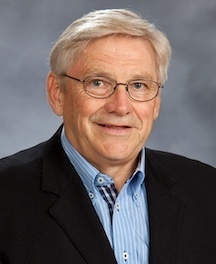
When I came back to Notre Dame in my second semester junior year I had a conversation with Professor John Van Engen, director of the MI at that time. He suggested it would only take a few more courses for me to earn a full second major in Medieval Studies, but I would have to quickly acquire skills in Latin, which I had never taken before, in order to take the two required 300-400 level courses in the language. Thanks to a Culpepper Scholarship, I attended an intensive ND summer school program to learn Latin between junior and senior years. I absorbed so much so quickly that summer—the equivalent of twelve credit hours—but I must admit that my skills in Latin to this day are a bit jumbled as the morning classes were taught by a former Jesuit with an ecclesiastical pronunciation and the afternoon classes were taught by a professor with a classical/Germanic pronunciation! Nevertheless I made it through my senior year to graduate in 1991 with a B.A. in History and Medieval Studies. That double major and all my experiences with the amazing and dedicated faculty and staff at Notre Dame helped me earn admission to the University of Chicago, where I completed a master’s degree in history in 1996.
Young people must learn to think critically about the world, understand how our past continues to influence our present, appreciate the great diversity of all there is to know, and be prepared to take action to make our world a better place. The rigorous, multidisciplinary program at Notre Dame, and the MI specifically, taught me these essential elements and provided a rich background for my vocation of instilling the same in the young people I teach today.
You shared that your career path took you into history education. Why do you consider that an important pursuit?
My Notre Dame experience prepared me well for graduate education where I anticipated going on to earn a Ph.D. in order to join the ranks of academia. Life has a way of twisting and turning you in ways you cannot cannot anticipate but only appreciate in hindsight. I thought I would go on to a career teaching at the college level, but I decided on a terminal master’s degree while at the University of Chicago. I had been given the opportunity to continue on fellowship at the university, but decided against it. Having been married in 1993 and looking to start a family, I decided against staying in school for another five or more years to prepare for the uncertain prospects of a career in academia. I chose instead to try for the more certain prospects of a job in a large city’s labor market. I worked as an editor for a small publishing company north of Chicago until our first child came along in 1997. I tried working from home (a novel concept back then!) thanks to early advances in personal computing and the internet, but after a year I decided to devote my full attention to raising our daughter (also a novel path for a man at that time).
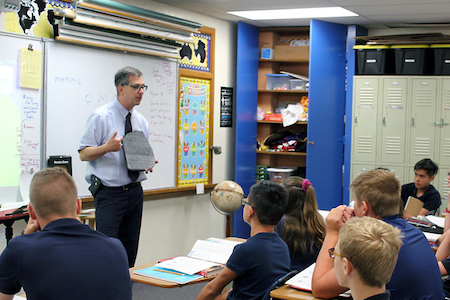
Over fifteen years quickly went by while my wife and I raised four children. In the meantime we moved back to my hometown in southern Indiana and I became interested in local history. I wrote two books on local history during those years as an intellectual diversion from the consuming (but admittedly mundane) world of parenting, but I rediscovered how enjoyable learning about and sharing my love of history could be. Numerous speaking engagements and book signings reignited my devotion to the subject. I began teaching an annual program at my children’s school where I portrayed Captain William Clark, dressing up as the explorer and teaching the children about the Corps of Discovery through living history. A few years later, with my last child now well into elementary school, I began substitute teaching there. A part-time teaching position opened up and I decided to begin a career in education.
I now teach junior high social studies at my school, where I can finally bring together all my experiences in this very fulfilling vocation. Social studies education seems to come last in importance behind the drive for STEM education nowadays, but in my opinion we neglect history, geography, and civics education at our peril. Young people must learn to think critically about the world, understand how our past continues to influence our present, appreciate the great diversity of all there is to know, and be prepared to take action to make our world a better place. The rigorous, multidisciplinary program at Notre Dame, and the MI specifically, taught me these essential elements and provided a rich background for my vocation of instilling the same in the young people I teach today.
What advice would you give undergraduate students in the Medieval Studies program or those debating entering the program?
First, work hard on developing your language skills. I studied French in high school, which really helped me continue to develop my skills in medieval French, but I waited until it was almost too late to develop essential skills in Latin. Starting earlier will especially help you build your vocabulary skills. Second, make it a priority in your college experience to study overseas in a place where you can develop your chosen interests. For me the London Programme provided that opportunity, but there are other places where you could have a meaningful experience.
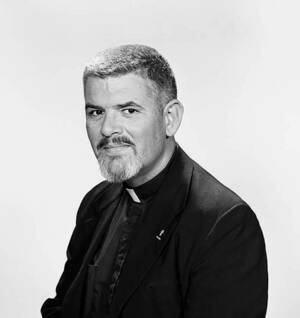
Third, use your electives to take a variety of courses outside of Medieval Studies. This may seem counterproductive to the path of specialization you tend to follow from undergraduate to graduate studies, but it will help you build a diverse knowledge base should your life take you on a path outside Medieval Studies. I became very interested in American history later in my life and I regret not having taken a course on the Civil War with the renowned Professor Robert Kerby, whose intricate chalkboard maps became a legendary part of his classroom instruction. I thought about taking that class, but decided against it in order to focus on the Middle Ages. I now wish I had had that experience.
Fourth and finally, don’t be afraid to develop your professional network. Marina Smyth always encouraged me to go to the annual conference in Kalamazoo but I admit that I was afraid to go. Don’t be intimidated by those with a lot more knowledge and experience than you have. Remember that they started where you are now and will look kindly on you as a developing young person of great potential. I especially appreciate the MI faculty who had the greatest impact on me, particularly William Dohar, Jonathan Boulton, Maureen Boulton, and Joseph Wawrykow.
Tell us a story about a meaningful experience you had during your program.
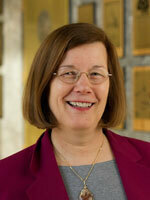
My boss at the MI, Librarian Marina Smyth, did so much more for me than she can ever know. I truly appreciate all her advice over the three years I worked at the MI. I appreciate her kind tolerance of the days I got behind on my job. (I’m so sorry, Marina, for those days when the books went unshelved!) I’ll never forget how she allowed me to spend a large portion of my time during my second semester senior year on helping her create a major window display in the Hesburgh Library that my family saw when they came for graduation. If my experience with Marina serves as any indication, then I know she must have had a profound influence on many other students at the MI over the years she served.
Editor's note: This interview has been edited for length and clarity.